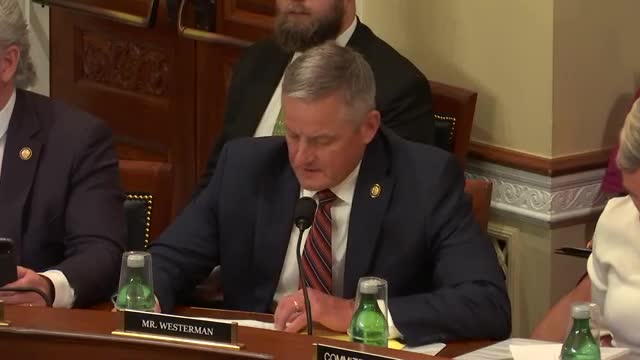California Faces Housing Crisis as Wildfire Insurance Rates Surge
May 16, 2025 | Natural Resources: House Committee, Standing Committees - House & Senate, Congressional Hearings Compilation
This article was created by AI summarizing key points discussed. AI makes mistakes, so for full details and context, please refer to the video of the full meeting. Please report any errors so we can fix them. Report an error »

The Oversight and Investigations Subcommittee of the U.S. House Committee on Natural Resources convened on May 16, 2025, to address the escalating crisis of wildfires and their impact on communities across the nation. The meeting highlighted the urgent need for action in response to the increasing frequency and severity of wildfires, particularly in the western United States.
The session opened with a stark reminder of the devastation caused by wildfires, noting that 16,200 homes were destroyed in recent events. It was emphasized that over 44 million homes are at risk in the wildland-urban interface, underscoring the critical nature of this issue. The committee members expressed a collective responsibility to prioritize wildfire prevention and management, especially for those living in high-risk areas.
A significant focus of the discussion was the alarming rise in insurance premiums for homeowners in fire-prone regions. California recently approved a 17% increase in State Farm insurance rates, reflecting a broader trend of skyrocketing costs that many families face. The committee noted that this financial burden is making homeownership increasingly unattainable, effectively threatening the American dream for millions. Furthermore, without adequate insurance, many families affected by wildfires struggle to rebuild, leading to long-term changes in community landscapes.
The committee acknowledged that while the challenges are daunting, solutions are available. Key strategies discussed included hardening homes and infrastructure, creating defensible spaces around communities, and implementing effective forest management practices to reduce fire risks. The members agreed that a comprehensive approach utilizing all available tools is essential to mitigate the impact of wildfires and protect vulnerable communities.
In conclusion, the meeting underscored the urgent need for coordinated efforts to address the wildfire crisis, emphasizing that proactive measures are necessary to safeguard homes and lives in affected areas. The committee plans to continue exploring solutions and advocating for policies that will enhance community resilience against future wildfires.
The session opened with a stark reminder of the devastation caused by wildfires, noting that 16,200 homes were destroyed in recent events. It was emphasized that over 44 million homes are at risk in the wildland-urban interface, underscoring the critical nature of this issue. The committee members expressed a collective responsibility to prioritize wildfire prevention and management, especially for those living in high-risk areas.
A significant focus of the discussion was the alarming rise in insurance premiums for homeowners in fire-prone regions. California recently approved a 17% increase in State Farm insurance rates, reflecting a broader trend of skyrocketing costs that many families face. The committee noted that this financial burden is making homeownership increasingly unattainable, effectively threatening the American dream for millions. Furthermore, without adequate insurance, many families affected by wildfires struggle to rebuild, leading to long-term changes in community landscapes.
The committee acknowledged that while the challenges are daunting, solutions are available. Key strategies discussed included hardening homes and infrastructure, creating defensible spaces around communities, and implementing effective forest management practices to reduce fire risks. The members agreed that a comprehensive approach utilizing all available tools is essential to mitigate the impact of wildfires and protect vulnerable communities.
In conclusion, the meeting underscored the urgent need for coordinated efforts to address the wildfire crisis, emphasizing that proactive measures are necessary to safeguard homes and lives in affected areas. The committee plans to continue exploring solutions and advocating for policies that will enhance community resilience against future wildfires.
View full meeting
This article is based on a recent meeting—watch the full video and explore the complete transcript for deeper insights into the discussion.
View full meeting